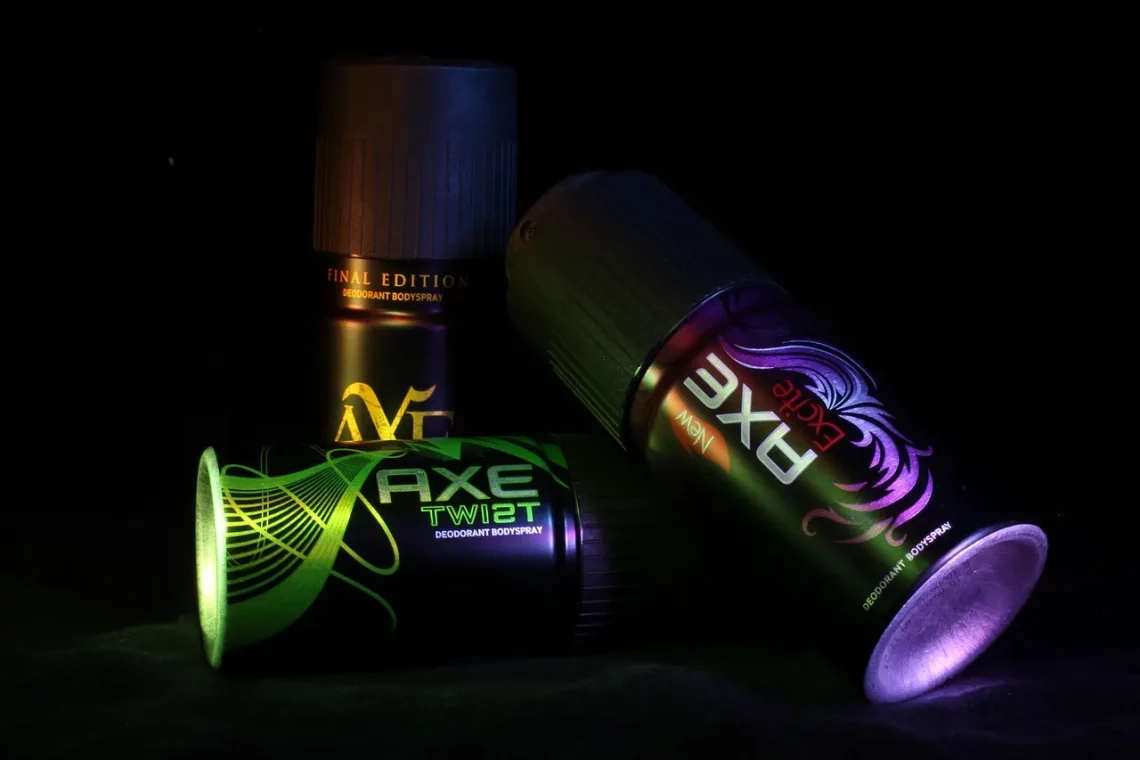
Can You Safely Use Deodorant on Your Male Private Area?
Using deodorant is a common practice for many people seeking to manage body odor and enhance personal hygiene. However, when it comes to applying deodorant to sensitive areas of the body, such as the male private area, questions about safety and effectiveness arise. The skin in this region is particularly delicate, and using products not specifically designed for it can lead to discomfort or irritation.
Many men often wonder if they can safely use the same deodorant they apply to their underarms in their groin area. This curiosity stems from the desire for a fresher feeling, especially during warmer months when sweating is more pronounced. While the convenience of a multi-use product can be appealing, it’s essential to consider the formulation of the deodorant and its potential effects on sensitive skin.
Moreover, the growing market for men’s grooming products has led to the development of specialized items designed for intimate areas. These products often claim to provide odor protection without the harsh ingredients found in traditional deodorants. Understanding the differences and making informed choices about personal care can lead to a more comfortable and healthier grooming routine.
Understanding Skin Sensitivity
When considering the application of deodorant on the male private area, it’s crucial to understand the concept of skin sensitivity. The skin in this region is notably thinner and more sensitive than other areas of the body, such as the underarms. This sensitivity can result in adverse reactions when exposed to certain chemicals or fragrances commonly found in commercial deodorants.
Many conventional deodorants contain alcohol, aluminum compounds, and synthetic fragrances, which can cause irritation or allergic reactions in sensitive skin. Symptoms may include redness, itching, or burning sensations, which can be uncomfortable and distracting. Therefore, it’s vital to pay attention to the ingredients listed on the product label.
Men with sensitive skin or a history of allergic reactions should exercise caution when using deodorants in intimate areas. Conducting a patch test on a less sensitive part of the body, such as the forearm, can help gauge how the skin will react. If irritation occurs, it’s best to avoid using that product on more delicate areas.
Additionally, factors such as heat, moisture, and friction can exacerbate skin sensitivity. The male groin area often experiences increased warmth and humidity, especially during physical activities. This environment can lead to chafing and further irritation, making the choice of deodorant even more critical.
Opting for products specifically designed for sensitive skin or formulated for intimate areas can provide a safer alternative. These products often forgo harsh chemicals and instead use natural ingredients that are less likely to cause irritation, offering a gentler solution while still addressing odor concerns.
Choosing the Right Deodorant
When it comes to selecting a deodorant for use in the male private area, choosing the right product is essential to ensure both safety and effectiveness. As the market for men’s grooming products expands, several brands have introduced options specifically designed for the groin area. These products typically emphasize gentle formulations that cater to the unique needs of sensitive skin.
One of the key factors to consider is the ingredient list. Look for deodorants that are free from alcohol, parabens, and synthetic fragrances, as these can irritate sensitive skin. Instead, consider products that feature natural ingredients such as coconut oil, shea butter, or baking soda, which can provide odor-fighting properties without the harsh side effects.
Another consideration is the product type. There are various forms of deodorants available, including roll-ons, sticks, sprays, and creams. Each type offers different application experiences, and personal preference plays a significant role in what feels comfortable. Cream-based deodorants, for example, can provide a moisturizing effect, while roll-ons may offer precise application.
For men who engage in physical activities or experience excessive sweating, choosing an antiperspirant designed for sensitive skin may be beneficial. While antiperspirants work by blocking sweat glands to reduce perspiration, it’s important to ensure that they are formulated without irritating ingredients.
Additionally, consider the scent of the deodorant. A fragrance that is too strong can be overwhelming, especially in close quarters. Opting for lightly scented or unscented products can help maintain comfort throughout the day.
Ultimately, the right deodorant should provide effective odor protection without compromising skin health. Taking the time to research and test various products can lead to a successful personal care routine that keeps you feeling fresh and comfortable.
Alternatives to Traditional Deodorants
For those who are hesitant to use traditional deodorants on their male private area, there are several alternatives worth exploring. These options can provide effective odor control while minimizing the risk of irritation or discomfort.
One popular alternative is the use of natural deodorants. These products typically contain plant-based ingredients and avoid synthetic chemicals, making them a gentler option for sensitive skin. Natural deodorants often utilize baking soda, arrowroot powder, or cornstarch to absorb moisture and neutralize odors. While they may not prevent sweating as effectively as conventional antiperspirants, many users find them sufficient for daily use.
Another alternative is the use of body powders, which can help keep the area dry and fresh. Talc-free powders made from cornstarch or arrowroot can absorb moisture and reduce friction, making them a suitable option for active individuals. Applying powder after showering can provide a layer of protection against odor throughout the day.
Additionally, some men may consider using intimate wipes designed for refreshing the groin area. These wipes are often pH-balanced and formulated to be gentle on sensitive skin. They can be a convenient option for on-the-go freshness and can be particularly useful after workouts or during hot weather.
For those who prefer a DIY approach, creating a homemade deodorant using simple ingredients like coconut oil, baking soda, and essential oils can be an effective and natural solution. However, it’s essential to test any homemade concoctions on a small skin area first to ensure no adverse reactions occur.
Ultimately, the key to managing odor in the male private area lies in finding the right balance between comfort, effectiveness, and skin health. With numerous options available, men can explore alternatives that work best for their individual needs and preferences.
Consulting a Healthcare Professional
While many men may feel comfortable experimenting with different deodorants and personal care products, there are instances when consulting a healthcare professional is advisable. If you experience persistent irritation, rashes, or other skin problems in the groin area, it’s essential to seek medical advice.
A dermatologist or healthcare provider can assess your skin condition and recommend appropriate treatments or products tailored to your needs. They can also help identify any underlying conditions that may contribute to skin sensitivity or odor issues.
In some cases, a healthcare professional may suggest specific dermatological products or treatments that can alleviate symptoms without causing further irritation. This guidance can be invaluable, especially for individuals prone to skin reactions or those with pre-existing skin conditions.
Moreover, if you are uncertain about the safety of a particular product for your intimate area, a consultation can provide clarity. Healthcare professionals can offer insights into formulations, potential allergens, and the best practices for maintaining skin health.
In summary, while deodorants can be used in the male private area with caution, understanding your skin’s sensitivities and choosing the right products is essential. When in doubt or facing persistent issues, seeking professional advice is a prudent step.
*Disclaimer: This article is not intended as medical advice. For any health concerns or issues, please consult with a qualified healthcare professional.*




